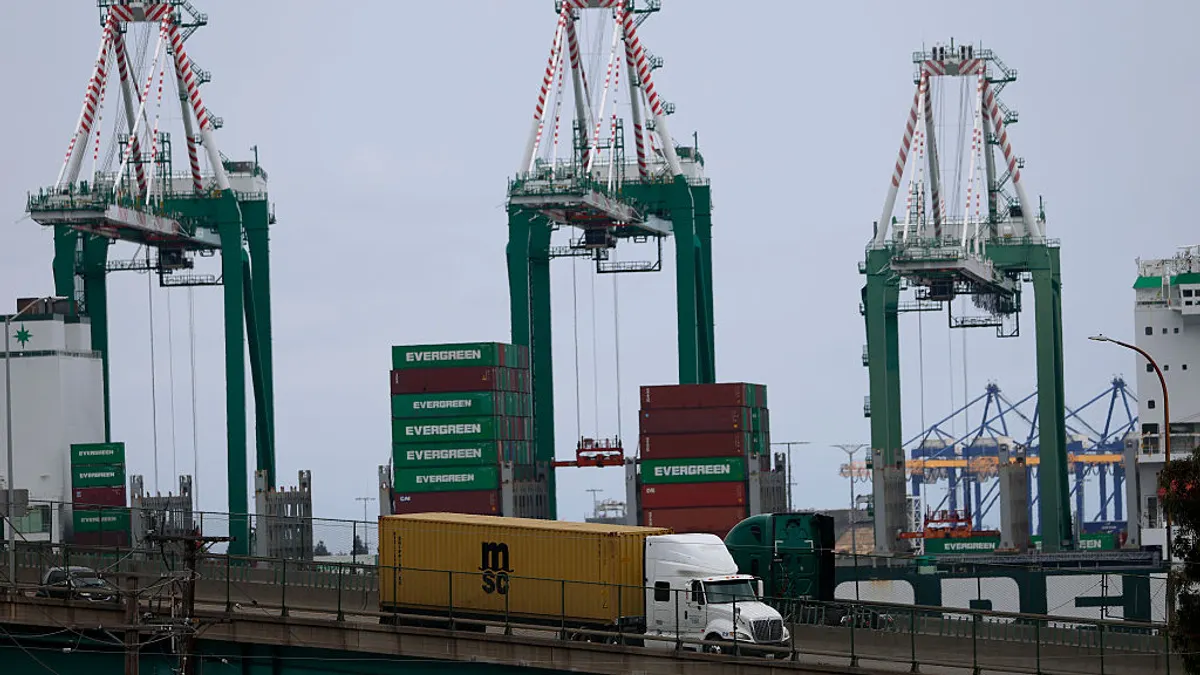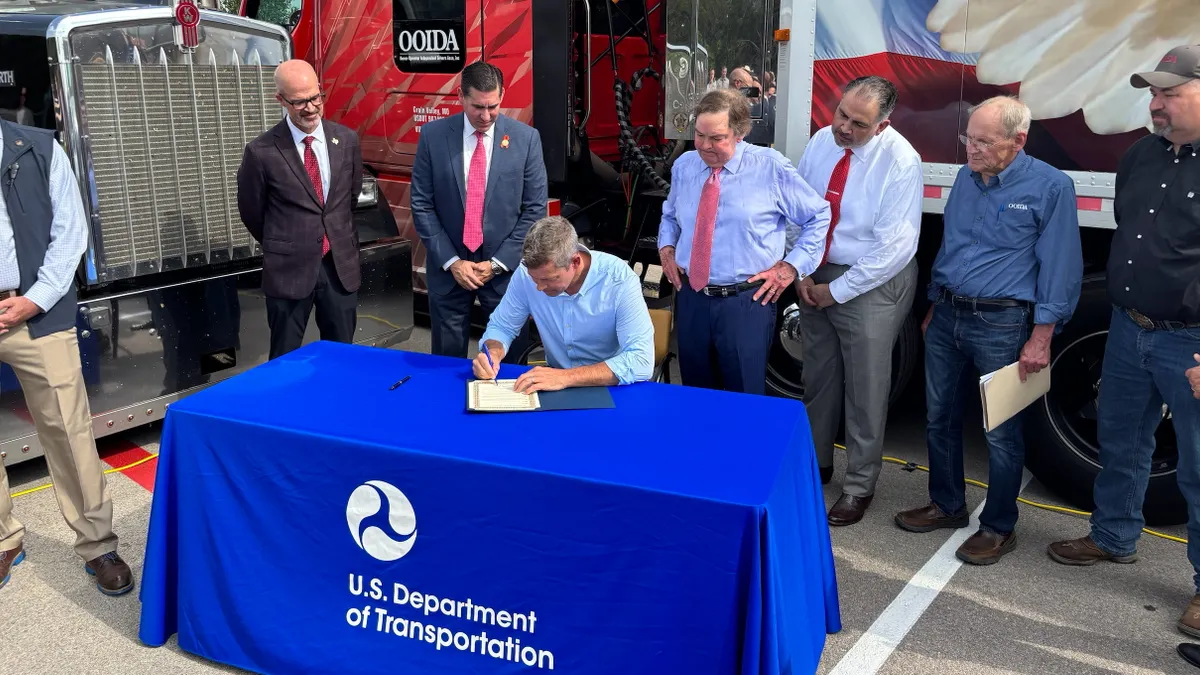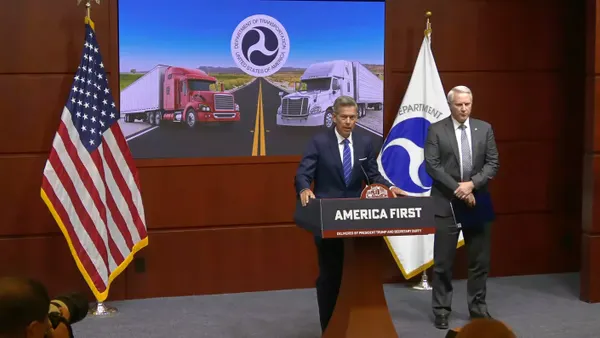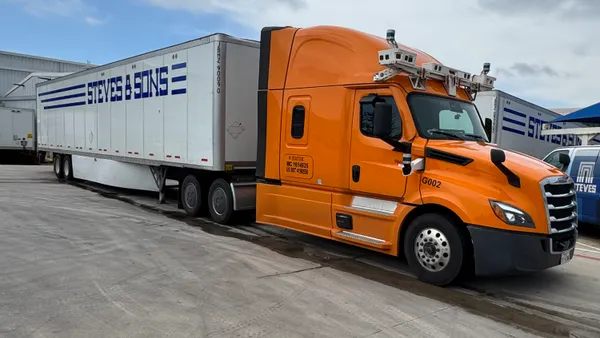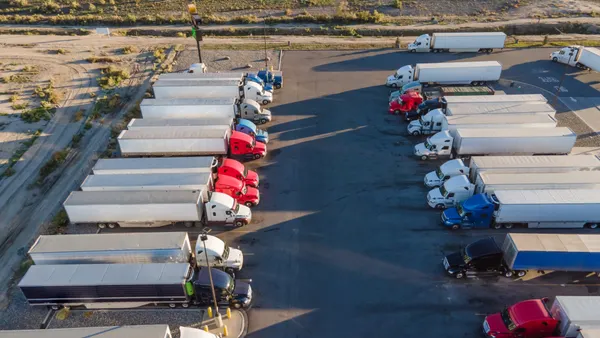Dive Brief:
- In Alberta, trucking and logistics companies are adapting their hiring practices to address the province’s higher-than-average driver vacancy rate, according to a recent survey conducted by Trucking HR Canada.
- The survey found that Alberta employers are attracting drivers with better pay and more perks, such as safety and performance incentives and mileage premiums.
- Additionally, companies are investing in newly licensed drivers — those with two or fewer years of experience — with most providing around 90 hours of training, onboarding and mentoring.
Dive Insight:
As the freight recession trudges on, rising costs are a top concern for Canadian trucking companies, Trucking HR Canada research shows.
Despite those pressures, Alberta employers are forced to pay more for both experienced and new drivers to meet demand. The region had more than 2,700 truck driver vacancies in Q3 2024, per the report from the survey.
The survey, conducted online between October and November 2024, included senior executives from 133 trucking companies that employ 5,149 drivers. The research was partially funded by the Province of Alberta and produced with the support of the Alberta Motor Transport Association.
One in five (18%) of the surveyed companies reported annual income increases of more than 10% for full-time employees in 2023, compared to only 5% of companies who reported that level of increase in 2022. Among the highest-paying companies, the average annual income for long-haul drivers was almost double that of their short-haul counterparts, according to Alberta.
Over two-thirds of Alberta employers believe hiring a new driver is more expensive than hiring an experienced one, even though more seasoned drivers earn much higher average annual incomes. That sentiment is largely tied to the significant amount of training new drivers require, but also because of higher insurance premiums, the report states.
Recently, the government of Alberta launched an apprentice-style program called the new Class 1 Learning Pathway for commercial drivers, which replaces its Class 1 mandatory entry-level training program. The government also offers grant funding to eligible employers who hire and train new Class 1 drivers, according to its website.
Trucking HR Canada plans to conduct a follow-up survey later this year to track the changes in Alberta’s trucking industry over time.



